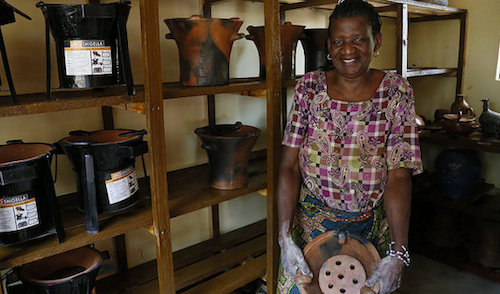Growing Impact Industries is the Focus of WDI Research in SSIR
Monday, June 4, 2018

An article published in the Stanford Social Innovation Review website and written by two WDI researchers showcases a framework for accelerating impact industries, those made up of profit-seeking, scalable businesses that also seek to create substantial social and/or environmental impacts.
Written by Colm Fay, who leads WDI’s Scaling Impact and Energy initiatives, and WDI Senior Research Fellow Ted London, this piece features a conceptual framework developed while working on a 2017 study for the Global Alliance for Clean Cookstoves (“the Alliance”). The Alliance is a public-private partnership hosted by the United Nations Foundation that aims to save lives, protect the environment, and improve livelihoods through access to clean cooking solutions. The study sought to identify which of the Alliance’s strategies worked, which were less successful, and the lessons that could be learned through its work to build a new global market for clean cooking solutions. The resulting framework is designed to help Impact Industry Accelerators (“IIAs”) such as the Alliance assess the current state of an industry, compare it to a desired future state, and prioritize and choreograph their strategic planning activities and investments accordingly.
After conducting research and interviewing Alliance leadership and its partners in Washington, D.C., Kenya and Bangladesh, Fay and London identified four interconnected strategies related to accelerating investment, mobilizing collective action, increasing profitability and enhancing impact. Fay said he hopes the insights developed from this work are applicable not only to the Alliance, but that they can be adapted for use by other IIAs that target low-income populations.
The Alliance has already begun to leverage the framework. It recently contributed to a new report published by the Alliance and Accenture which explores business model and financing challenges and opportunities to drive scale and sustainability in the clean cooking sector.
“The Alliance has contributed to significant progress towards establishing a viable clean cooking industry, and has learned much along the way, making this a fitting time to re-assess this growing space, and our organization’s role in it,” said Peter George, director of Enterprise Development and Investment at the Alliance. “The WDI research has helped us evaluate our priorities and will allow us to more effectively support businesses and other sector actors as we continue to work toward our shared goals.”

To achieve those goals, which include universal access to clean cooking solutions by 2030, the Alliance recognizes it must develop a sustainable industry that leverages mission-driven public resources to attract private sector innovation and capital. It is clear that while ambitious goals have been helpful in generating support for a cause, turning a vision of impact into reality can be challenging. This framework provides an approach that helps IIAs better identify, prioritize and choreograph their activities.
“We hope these insights lead to more constructive conversations between IIAs and their stakeholders that focus not just on milestones and deadlines, but on what needs to be done to accelerate an entire industry,” Fay said.
The Stanford Social Innovation Review is a quarterly magazine and website about social innovation published by the Stanford Center on Philanthropy and Civil Society at Stanford University.
Both images courtesy of Russell Watkins, Department for International Development (DFID).
